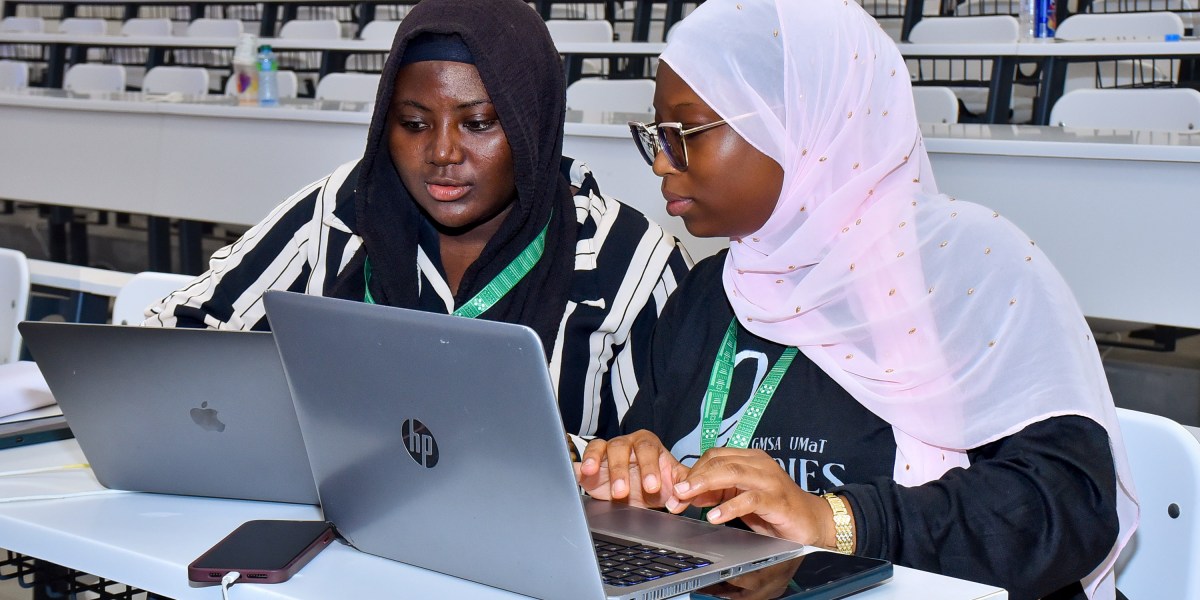It’s unclear what’s behind the second strategy, but Seydina Ndiaye, a program director at the Cheikh Hamidou Kane Digital University in Dakar who helped draft the development agency’s white paper, claims it was drafted by a tech lobbyist from Switzerland. The commission’s strategy calls for African Union member states to declare AI a national priority, promote AI startups, and develop regulatory frameworks to address safety and security challenges. But Ndiaye expressed concerns that the document does not reflect the perspectives, aspirations, knowledge, and work of grassroots African AI communities. “It’s a copy-paste of what’s going on outside the continent,” he says.
Vukosi Marivate, a computer scientist at the University of Pretoria in South Africa who helped found the Deep Learning Indaba and is known as an advocate for the African machine-learning movement, expressed fury over this turn of events at the conference. “These are things we shouldn’t accept,” he declared. The room full of data wonks, linguists, and international funders brimmed with frustration. But Marivate encouraged the group to forge ahead with building AI that benefits Africans: “We don’t have to wait for the rules to act right,” he said.
Barbara Glover, a program manager for the African Union Development Agency, acknowledges that AI researchers are angry and frustrated. There’s been a push to harmonize the two continental AI strategies, but she says the process has been fractious: “That engagement didn’t go as envisioned.” Her agency plans to keep its own version of the continental AI strategy, Glover says, adding that it was developed by African experts rather than outsiders. “We are capable, as Africans, of driving our own AI agenda,” she says.

DEEP LEARNING INDABA 2024
This all speaks to a broader tension over foreign influence in the African AI scene, one that goes beyond any single strategic document. Mirroring the skepticism toward the African Union Commission strategy, critics say the Deep Learning Indaba is tainted by its reliance on funding from big foreign tech companies; roughly 50% of its $500,000 annual budget comes from international donors and the rest from corporations like Google DeepMind, Apple, Open AI, and Meta. They argue that this cash could pollute the Indaba’s activities and influence the topics and speakers chosen for discussion.
But Mohamed, the Indaba cofounder who is a researcher at Google DeepMind, says that “almost all that goes back to our beneficiaries across the continent,” and the organization helps connect them to training opportunities in tech companies. He says it benefits from some of its cofounders’ ties with these companies but that they do not set the agenda.
Ndiaye says that the funding is necessary to keep the conference going. “But we need to have more African governments involved,” he says.
To Timnit Gebru, founder and executive director at the nonprofit Distributed AI Research Institute (DAIR), which supports equitable AI research in Africa, the angst about foreign funding for AI development comes down to skepticism of exploitative, profit-driven international tech companies. “Africans [need] to do something different and not replicate the same issues we’re fighting against,” Gebru says. She warns about the pressure to adopt “AI for everything in Africa,” adding that there’s “a lot of push from international development organizations” to use AI as an “antidote” for all Africa’s challenges.
Siminyu, who is also a researcher at DAIR, agrees with that view. She hopes that African governments will fund and work with people in Africa to build AI tools that reach underrepresented communities—tools that can be used in positive ways and in a context that works for Africans. “We should be afforded the dignity of having AI tools in a way that others do,” she says.

